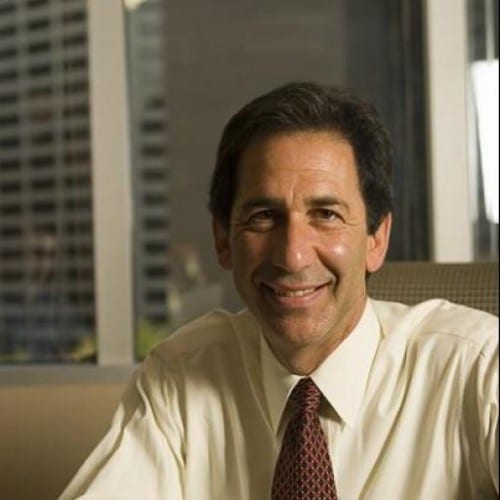The most important ABA Model Rule governing professional conduct in the area of legal marketing is Rule 7.1, which covers communications concerning a lawyer’s services. All states have adopted this rule, worded exactly the same or very close to it. The rule provides:
A lawyer shall not make a false or misleading communication about the lawyer or the lawyer’s services. A communication is false or misleading if it contains a material misrepresentation of fact or law, or omits a fact necessary to make the statement considered as a whole not materially misleading.
Simply put, it says “thou shalt not lie.” Lawyers being lawyers, however, we somehow make what should be a straightforward rule into something far more complex.
Recently, I conducted a legal review of numerous catchy words and phrases that a marketing-savvy lawyer might want to use, and assessed the risk of each under the rule. If the rule is “don’t lie,” it seems that you shouldn’t need to retain legal counsel to tell the truth from a lie. But in fact the regulations are murky. Here are some of the ethics traps that lawyers typically fall into when communicating with potential clients about their legal services.
Don’t Create Unjustified Expectations
Perhaps the best example of a trap is a statement along the lines of “I’ve settled cases worth well over a million dollars.” While that certainly may be true, many regulators would find it misleading. The thinking would be that a consumer might believe that the lawyer settles all cases for seven figures.
Be Careful When Comparing
The best marketers always know and emphasize their point of differentiation. Lawyers should be prepared to answer the question “Why should I hire you compared to your competition?” When answering that question with comparative words like “better” or “faster” or “more creative,” keep in mind that you may need to substantiate the comparison if called to task by a regulator.
Avoid Guarantees
What about phrases commonly found on websites or in the Yellow Pages, such as these?
- Avoid Jail!
- We Can Eliminate Your Debt!
- We’ll Stop Foreclosure!
No doubt the lawyers will try to accomplish those objectives, but regulators could potentially reason that consumers will think that the lawyer is guaranteeing an in-fact uncertain result.
Avoid Superlatives
Even if you have been selected by Best Lawyers in America or Super Lawyers, don’t go around saying “I’m the Best!” or “I’m a Super Lawyer!” Regulators in some states believe that using superlatives in that fashion may mislead and confuse. What do you mean by the best? The best compared to what? Super? What does that really mean?
Alternatively, regulators may view use of such terms as an implied but unsubstantiated comparison with other lawyers (see above). Under either theory, it could be a Rule 7 legal marketing ethics violation.
The way to work around this is to say, “John Smith was listed in Best Lawyers in America” or “John Smith was listed in Super Lawyers,” rather than “John Smith is the best lawyer in America” or “John Smith is a super lawyer.” Take extra care whenever you are tempted to use a superlative.
Use “Specialize” or “Specialist” Cautiously
Here the problem is Rule 7.4(d). The ABA Model Rule provides:
A lawyer shall not state or imply that a lawyer is certified as a specialist in a particular field of law, unless: (1) The lawyer has been certified as a specialist by an organization that has been approved by an appropriate state authority or that has been accredited by the American Bar Association; and (2) The name of the certifying organization is clearly identified in the communication.
For similar reasons, lawyers should avoid using the word “expert” as well.
Do Your Math Carefully
A firm cannot say it has 100 years of experience if that comes from four lawyers with 25 years each. Better to say 100 combined years of experience.
Other Tricky Words and Phrases
If you run afoul of a regulator from a very restrictive state, like Florida or Texas, who has too much time on his or her hands or is having a bad day, even these common adjectives could be problematic:
- Seasoned
- Skilled
- Experienced
Because these words are vague and subjective, a strict regulator might find them misleading. How do you define or measure “seasoning,” skill or experience? They could also be interpreted to be an implied unsubstantiated comparison. Seasoned, skilled or experienced compared with whom?
Should a recent law school graduate use any of these terms, it would likely be a violation in any state. A lawyer with 20 years of experience, on the other hand, could provide the evidence to support use of these words and others like them.
Terms with Enhanced Risk
If you practice in a highly restrictive state, it is better to be safe than sorry. You should stay away from words or phrases such as:
- Aggressive
- Tough
- We Won’t Just Settle, We Fight!
Although taste is not supposed to be regulated, in reality a very small number of states do just that. If these terms offend regulators, they could therefore be a violation. The regulators will likely hide behind some reason other than taste to support a ruling.
Mileage May Vary
In reality, many of the words and phrases noted here are regularly used by attorneys without any negative repercussions. State regulators usually have more important issues to address than the language lawyers use in their communications. Very few regulators are actually on the prowl for legal marketing ethics violators.
That said, always check the rules and relevant ethics opinions in your state. Appropriate disclaimers or qualifying language can also help. Many states have ethics hotlines to provide further guidance. Remember what it all boils down to: Don’t lie and don’t mislead.
Roy S. Ginsburg is an attorney coach who works one-to-one in the areas of business development, practice management and career development. He has practiced law for more than 25 years in large to small firms and in a corporate setting. He is currently an active solo with a part-time practice in legal marketing ethics and employment law. Learn more about Roy at www.royginsburg.com.
Illustration ©iStockphoto.com
















